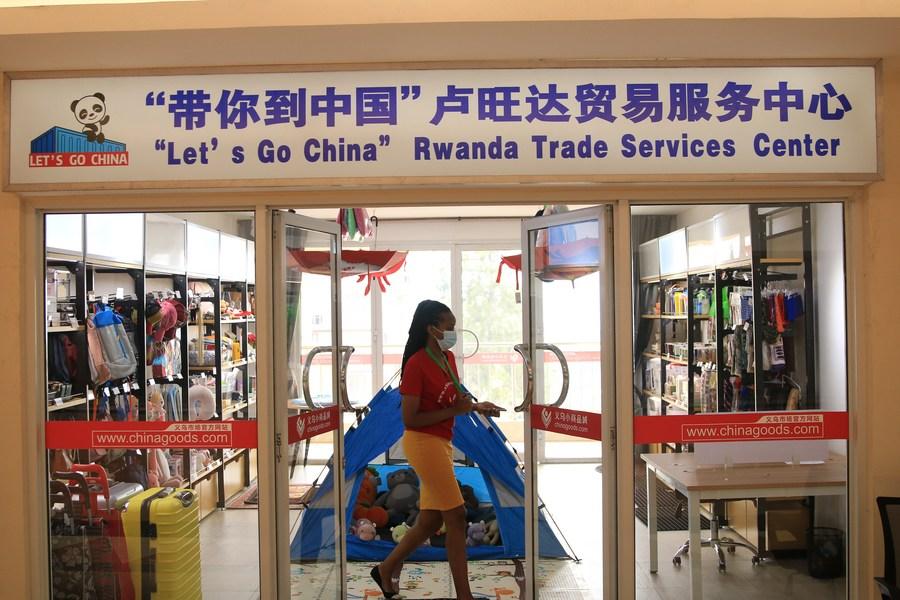
Editor's note: Since its proposal, some Westerners have never stopped discrediting the Belt and Road Initiative (BRI) in the past 10 years. Is the BRI predatory? Is it a geopolitical tool? Is the initiative a complete failure? Introduced at the BRI's 10th anniversary, Dispelling Misconceptions on BRI is an eight-part series debunking Western lies on the initiative. The first essay refutes the allegation of BRI's neocolonialism.
By Fikrejesus Amahazion
In 2013, the multi-billion-dollar Belt and Road Initiative (BRI), hailed by Chinese President Xi Jinping as "the project of the century," was announced. As a vast network of transportation, energy, and telecommunications infrastructure aimed at connecting maritime and overland trade, the BRI has steadily extended from Asia to Europe, Africa, Oceania, and Latin America.
Among the countries participating in the BRI, the largest bloc is from Africa. Among the 53 African countries that have established diplomatic relations with China, 52, plus the African Union Commission, have signed BRI cooperation documents with China.
However, in some areas, particularly the West, the increasingly close relationship forged between China and Africa, as powerfully reflected in the robust and growing cooperation under the framework of the BRI, has led to a high level of criticism. Frequently, the relationship is portrayed in an unjustifiably harsh negative light, often based on a Sino-phobic narrative and involving paternalistic warnings to Africans of the alleged dangers of China's "predatory" activities on the continent.
Despite these concerns and notwithstanding the fact that the BRI has faced multiple challenges since its inception, a large body of research has strongly rejected these criticisms, while the populations of many African countries actually regard China and the BRI in a much different light. For many Africans, China's engagement with the continent, as embodied by the BRI, has met the diverse needs of locals, promoted development, and helped improve living standards.
"China is not here to exploit Africa as the Western world perceives, because looking at the African infrastructure development side, the BRI is helping Africa to transform itself. China comes with the help Africans need," Frederick Golooba Mutebi, a Ugandan independent researcher and analyst, was quoted by Xinhua as saying. A 2022 survey issued by the Inter Region Economic Network, a Kenya-based think tank, found that China takes a substantial lead timely completion of infrastructure projects in Africa and has tangibly contributed to the continent's development.

A staff works in the "Let's go China" exhibition hall at Kigali City Tower in Kigali, Rwanda, on September 9, 2021. [Photo/Xinhua]
Since its inception, the BRI has been particularly important for African integration and connectivity, industrialization, energy, and plugging the continent's longstanding infrastructure deficits – all of which are high-priority areas under the African Union's Agenda 2063 and various regional or national development strategies. This is also in keeping with the win-win cooperation approach that has historically guided China-Africa relations.
In the energy sector alone, China has funded more than 36 projects in at least 19 African countries. In addition, China has helped African countries build more than 6,000 kilometers of railways, 6,000km of roads, and nearly 20 ports, among other major infrastructure, thus not only significantly improving transportation and trade between China and the continent, but also spurring intra-continental links and breaking a major bottleneck which has long held back Africa's aspirations for sustainable development.
Moreover, under the framework of the BRI, over two dozen economic and trade cooperation zones have been established in 16 African nations. This has led to the development of hundreds of businesses, created jobs, and attracted billions of dollars in investment flows.

Audiences take photos of a performance at the Changsha International Convention and Exhibition Center during the third China-Africa Economic and Trade Expo in Changsha, central China's Hunan Province, July 1, 2023. [Photo/Xinhua]
Notably, although many traditional types of infrastructure have remained central to the BRI in Africa, digital technology is an increasingly important area for growth and investment. Worth keeping in mind, too, is that the BRI, and Chinese investment and engagement more broadly, are especially critical for Africa moving forward, in light of the fact that the continent is home to some of the world's fastest-growing economies, possesses a young population, and holds a middle class that is rapidly expanding.
Within the BRI framework, China's investments in Africa, with a focus on infrastructure, trade, and digital technology, aim to enhance the continent's capacity for self-development, rather than exploit it for selfish economic gains. This approach stands in stark contrast to the Western colonization of the past, during which significant investments in mining and other resource-related industries often led to deteriorating conditions in Africa.
For Africa, the BRI has helped to promote an array of positive outcomes in multiple areas and deepened the continent's ties with China. Looking ahead, Africa's continued participation within the BRI framework will present it with a host of opportunities and offer the potential for further development and prosperity. BRI's "predatory" engagement in Africa as hyped by some Westerners is a pure lie.
The author Fikrejesus Amahazion is an educator and research analyst at the Eritrean Center for Strategic Studies in Asmara. His areas of interest include human rights, political economy, and international development, with a particular focus on Africa.

 中文
中文



